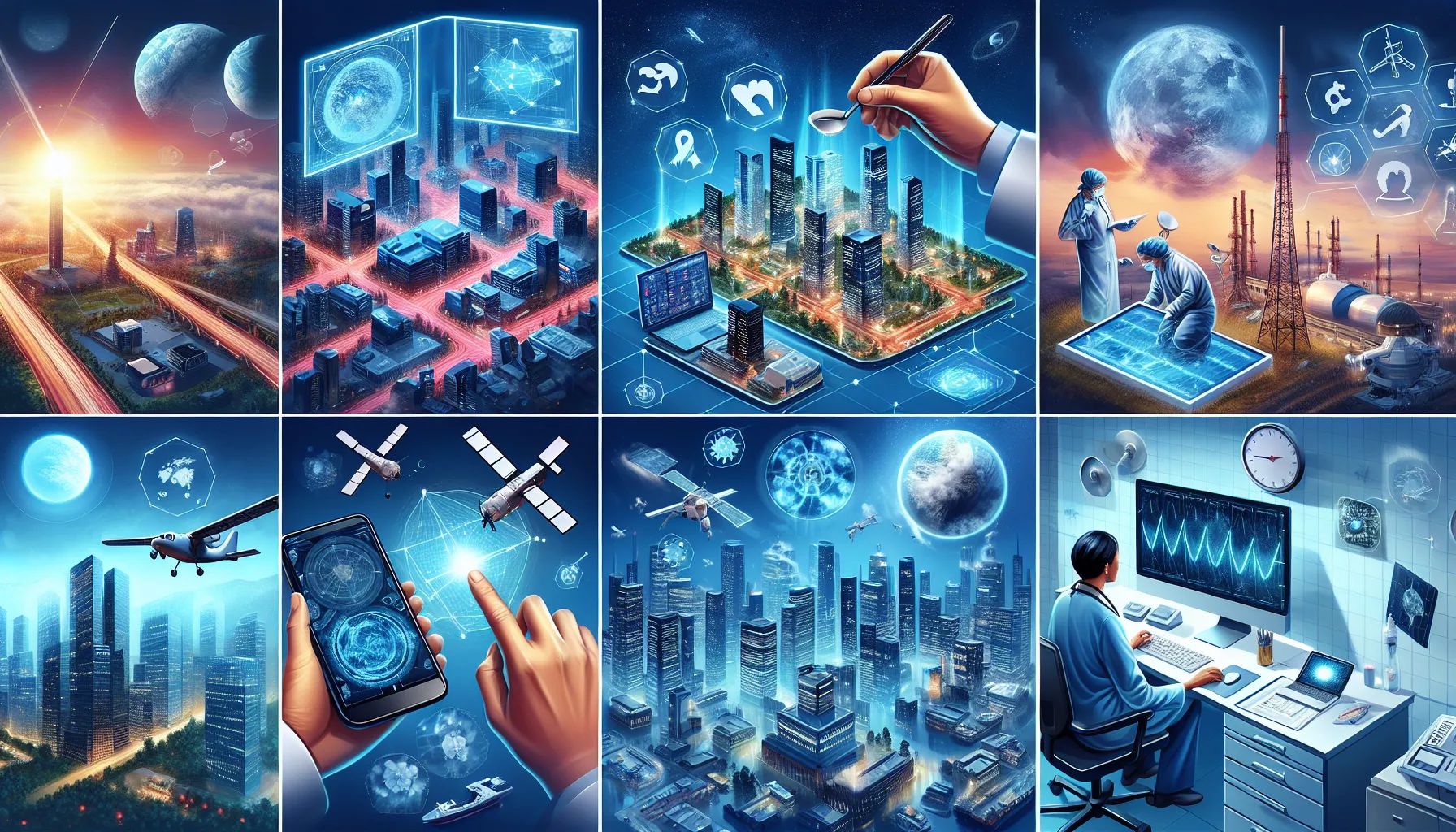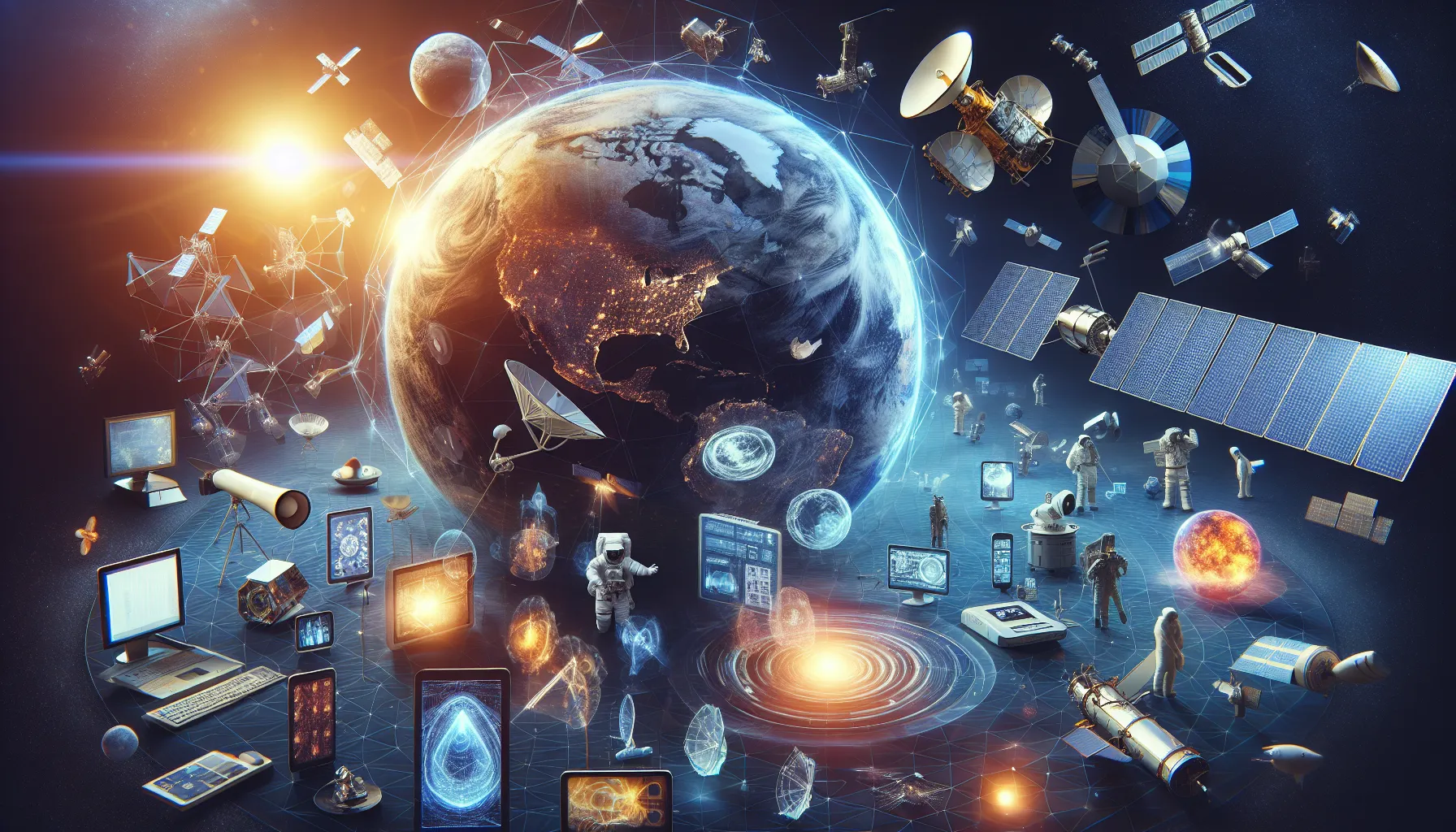Space exploration and research have been recurring themes in IELTS Writing Task 2 essays. Based on an analysis of past exam questions, topics related to the importance of space research for future exploration are likely to appear with moderate frequency. Let’s examine a relevant question that has appeared in recent IELTS tests:
Some people think that space exploration is a waste of money and that funds should be spent on more immediate needs on Earth. To what extent do you agree or disagree with this view?
Analyzing the Question
This question requires candidates to discuss their opinion on the allocation of resources between space exploration and addressing immediate needs on Earth. Key points to consider:
- The main argument: Is space exploration worthwhile or a waste of money?
- Contrasting viewpoint: Should funds be redirected to more pressing Earth-based issues?
- Personal stance: Agree, disagree, or partially agree/disagree?
Sample Essays
Band 8-9 Essay
The debate over the allocation of resources between space exploration and terrestrial needs has been ongoing for decades. While some argue that space research is a frivolous expenditure in the face of pressing earthly concerns, I firmly believe that investment in space exploration is not only justified but crucial for humanity’s long-term progress and survival.
Firstly, space exploration drives technological innovation that benefits life on Earth. Many of the technologies we take for granted today, such as GPS, weather forecasting satellites, and advanced medical imaging, are direct results of space research. These innovations have revolutionized various sectors, including communication, transportation, and healthcare, improving the quality of life for billions of people worldwide.

Moreover, space research provides invaluable insights into our planet and the universe. Satellite observations enable us to monitor climate change, predict natural disasters, and manage natural resources more effectively. Understanding planetary ecosystems beyond Earth can also offer crucial lessons for preserving our own environment. As we face global challenges like climate change and resource depletion, the knowledge gained from space exploration becomes increasingly vital.
Furthermore, space exploration represents a long-term investment in humanity’s future. As our population grows and resources become scarcer, the prospect of space colonization and resource extraction from other celestial bodies could be key to our species’ survival. While these goals may seem distant, continued investment in space research is necessary to make them achievable.
That being said, it is crucial to strike a balance between space exploration and addressing immediate earthly needs. Governments and space agencies should prioritize projects that have tangible benefits for society and allocate resources efficiently. International collaboration in space research can help distribute costs and maximize benefits for all of humanity.
In conclusion, while addressing immediate needs on Earth is undoubtedly important, space exploration should not be viewed as a waste of money. Its contributions to technological advancement, scientific understanding, and humanity’s long-term prospects far outweigh its costs. By continuing to invest in space research while also addressing pressing terrestrial issues, we can ensure a brighter future for our planet and our species.
(Word count: 329)
Band 6-7 Essay
The question of whether space exploration is a waste of money or a worthwhile investment has been debated for many years. While some people believe that funds should be spent on more immediate needs on Earth, I partially agree with this view, as I think a balance between space research and addressing Earth’s problems is necessary.
On one hand, there are many pressing issues on Earth that require immediate attention and funding. Problems such as poverty, hunger, and lack of access to healthcare and education affect millions of people worldwide. It could be argued that the money spent on space exploration could be better used to address these urgent needs and improve the lives of people on our planet.
However, space exploration has also brought many benefits to humanity. Many technologies we use in our daily lives, such as satellite communications and weather forecasting, have come from space research. These advancements have improved our quality of life and helped us better understand and protect our planet. Space exploration has also led to important scientific discoveries about our universe and our place in it.
I believe that a balanced approach is the best solution. While we should continue to invest in space research and exploration, we should also ensure that sufficient resources are allocated to address immediate needs on Earth. Governments and organizations should carefully consider their priorities and distribute funds in a way that benefits both scientific progress and human welfare.
In conclusion, while space exploration is important for scientific advancement and long-term benefits, we must not neglect the urgent needs of people on Earth. A balanced allocation of resources between space research and addressing immediate earthly concerns is essential for the overall progress and well-being of humanity.
(Word count: 282)
Band 5-6 Essay
Some people think that spending money on space exploration is a waste and we should use this money for immediate needs on Earth. I partly agree with this idea because there are many problems on Earth that need to be solved, but I also think space exploration is important.
First, there are many problems on Earth that need money to be fixed. Many people are poor and don’t have enough food or good healthcare. We should help these people first before spending money on space. Also, there are environmental problems like pollution and climate change that need to be solved quickly.
But, space exploration is also important and has some good points. It helps us learn new things about the universe and can lead to new technologies that help people on Earth. For example, satellites help us with communication and weather forecasting. Space research can also inspire young people to study science and technology.
I think we should try to do both things. We should spend some money on space exploration because it can help us in the future, but we should also make sure we have enough money to solve problems on Earth. Governments should be careful about how they spend money and try to balance both needs.
In conclusion, while immediate needs on Earth are very important, space exploration should not be completely stopped. We need to find a way to do both things so that we can help people now and also prepare for the future.
(Word count: 238)
Explanation of Band Scores
Band 8-9 Essay:
- Task Achievement: Fully addresses all parts of the task with a clear position throughout. Presents a fully developed position with relevant, extended, and well-supported ideas.
- Coherence and Cohesion: Skillfully manages paragraphing with a clear central topic in each paragraph. Uses a wide range of cohesive devices appropriately.
- Lexical Resource: Uses a wide range of vocabulary naturally and flexibly. Rare minor errors occur only as ‘slips’.
- Grammatical Range and Accuracy: Uses a wide range of structures with full flexibility and accuracy. Rare minor errors occur only as ‘slips’.
Band 6-7 Essay:
- Task Achievement: Addresses all parts of the task, though some parts may be more fully covered than others. Presents a relevant position, though conclusions may be unclear or repetitive.
- Coherence and Cohesion: Arranges information coherently and uses a range of cohesive devices, though there may be some under/over-use.
- Lexical Resource: Uses an adequate range of vocabulary for the task. Attempts to use less common vocabulary but with some inaccuracy.
- Grammatical Range and Accuracy: Uses a mix of simple and complex sentence forms. Makes some errors in grammar and punctuation but they rarely reduce communication.
Band 5-6 Essay:
- Task Achievement: Addresses the task only partially. The format may be inappropriate in places. Expresses a position but development is not always clear.
- Coherence and Cohesion: Presents information with some organization but there may be a lack of overall progression. Uses basic cohesive devices.
- Lexical Resource: Uses a limited range of vocabulary, but this is minimally adequate for the task. May make noticeable errors in spelling and word formation.
- Grammatical Range and Accuracy: Uses only a limited range of structures. Attempts complex sentences but these tend to be less accurate than simple sentences.
Key Vocabulary to Remember
-
Space exploration (noun) – /speɪs ˌekspləˈreɪʃən/ – The investigation of physical conditions in space and on stars, planets, and other celestial bodies through the use of artificial satellites, space probes, and human spaceflight.
-
Allocation (noun) – /ˌæləˈkeɪʃən/ – The act of distributing something for a particular purpose.
-
Innovation (noun) – /ˌɪnəˈveɪʃən/ – The introduction of new ideas, methods, or things.
-
Terrestrial (adjective) – /təˈrestriəl/ – Of, on, or relating to the earth.
-
Colonization (noun) – /ˌkɒlənaɪˈzeɪʃən/ – The action or process of settling among and establishing control over the indigenous people of an area.
-
Celestial (adjective) – /səˈlestiəl/ – Positioned in or relating to the sky, or outer space as observed in astronomy.
-
Tangible (adjective) – /ˈtændʒəbəl/ – Perceptible by touch; clear and definite; real.
-
Frivolous (adjective) – /ˈfrɪvələs/ – Not having any serious purpose or value.
-
Paramount (adjective) – /ˈpærəmaʊnt/ – More important than anything else; supreme.
-
Extraterrestrial (adjective) – /ˌekstrətəˈrestriəl/ – Of or from outside the earth or its atmosphere.
Conclusion
The importance of space research for future exploration is a topic that frequently appears in IELTS Writing Task 2. To excel in this type of question, it’s crucial to present a balanced argument, considering both the benefits of space exploration and the immediate needs on Earth. Practice writing essays on this topic, focusing on clear structure, coherent arguments, and appropriate use of advanced vocabulary.
For further practice, consider writing essays on related topics such as:
- The role of international cooperation in space exploration
- The ethical implications of space colonization
- The impact of space technology on everyday life
Remember to post your practice essays in the comments section for feedback and discussion. This active engagement will help you improve your writing skills and prepare effectively for the IELTS exam.
To further enhance your understanding of scientific research and its global impact, you may want to explore these related topics:
- Why global warming should be prioritized in scientific research
- The importance of open access to scientific research
- Why space exploration is essential for scientific progress
These resources will provide additional context and vocabulary to strengthen your essays on space research and related scientific topics.
